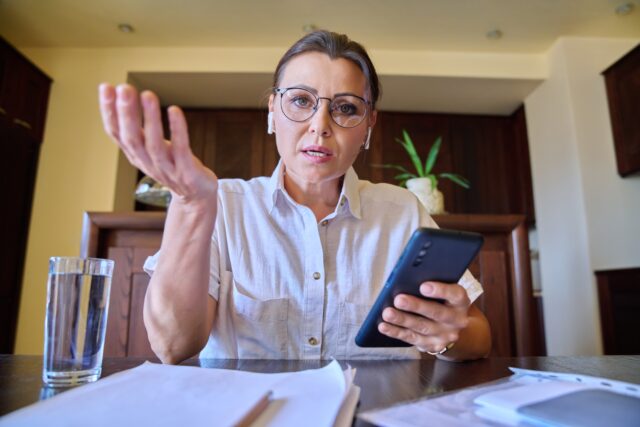A lot of people claim that they’re non-judgemental and accept everyone regardless of their differences, but that’s not actually true.

There are so many people whose “open-mindedness” is actually incredibly limiting, and in reality, they’re hypercritical of people whose lives, opinions, or experiences don’t align with their own. How can you spot people like this? They’ll often say these things.
1. They use “just saying” to soften offensive comments.
 Source: Unsplash
Source: Unsplash They use this as a get-out-of-jail-free card for saying something mean. People use it to avoid taking responsibility for their words. If someone constantly ends their opinions with “just saying”, they might be trying to voice prejudiced views without facing consequences. It’s a way of testing the waters to see what they can get away with while maintaining a facade of casualness.
2. “No offence, but…” is their preface for saying something offensive.

This is almost always followed by something that’s definitely going to cause offence. It’s like thinking that putting a plaster on someone before punching them makes it okay. People who say this are often aware that what they’re about to say is inappropriate. Instead of reconsidering their words, they use this as a shield, showing they care more about expressing their views than about how those views might hurt people.
3. They overuse “snowflake” to dismiss other people’s feelings.

This was originally meant to describe someone who thinks they’re unique and special, but this term has become a way to mock people for being sensitive. When someone calls others “snowflakes” for expressing their feelings or standing up for themselves, they’re showing a lack of empathy.
4. “I’m not racist, but…” is their lead-in for racist comments.
 Source: Unsplash
Source: Unsplash This is almost always followed by a statement that is, in fact, racist. People use it as a sort of disclaimer, hoping it will excuse whatever prejudiced thing they’re about to say. When someone frequently starts sentences this way, they’re showing that they’re aware their views might be seen as racist, but they want to express them anyway.
5. They use “political correctness” as a complaint when called out.
 Source: Unsplash
Source: Unsplash Being thoughtful about the words we use is important, but close-minded people use this as a way to dismiss any criticism of their insensitive remarks. They might complain that “you can’t say anything these days” when someone calls them out, but this is just an excuse for being a jerk.
6. “I don’t see colour” is their way of avoiding discussions about race.
 Source: Unsplash
Source: Unsplash Close-minded people love to use this to get out of talking about race critically. It ignores the real experiences and challenges faced by people of colour. When someone says they “don’t see colour”, they’re often revealing a reluctance to engage with the complexities of racial identity and discrimination. Life doesn’t work that way!
7. They use “free speech” to defend saying hurtful things.

Freedom of speech is a crucial right, but some people invoke it to avoid facing consequences for offensive comments. What they don’t get is that that free speech doesn’t mean freedom from other people’s reactions. They’re often more interested in saying whatever they want without criticism than in being respectful, and that just doesn’t wash.
8. “You people” is their way of lumping diverse groups together.

This is often used to make sweeping generalisations about entire groups. It’s a way of othering people based on race, gender, religion, or other characteristics. This reveals a tendency to see people as representatives of a monolithic group rather than as unique human beings.
9. “I’m just playing devil’s advocate” is their excuse for voicing offensive views.

While it’s a good thing to consider different perspectives, some people use this to express controversial or hurtful opinions without taking responsibility for them. They bring up insensitive arguments just to stir the pot, then hide behind the guise of intellectual debate. They’re more interested in creating drama than having an actual discussion.
10. They use “lighten up” to dismiss concerns about offensive jokes.

This often comes after someone has made an insensitive joke and been called out for it. Instead of considering why their humour might be hurtful, they put the blame on other people for being too sensitive. They’re clearly uninterested in reflecting on their own behaviour.
11. “I have a [minority] friend” is their defence against accusations of prejudice.

Having a friend from a minority group doesn’t automatically make someone free from bias. When people use this defence, they’re often trying to deflect criticism without actually examining their own attitudes. It reveals an extremely superficial understanding of what it means to be truly inclusive and respectful of diversity.
12. They overuse “triggered” to mock people’s emotional responses.

Originally a term used in psychology, “triggered” has been co-opted by some to dismiss people’s genuine emotional reactions. When someone uses this term mockingly, they’re often belittling real feelings and experiences.
13. “It’s just a joke” is their go-to defence for offensive humour.

Humour can be subjective, but some things are objectively inappropriate and unfunny across the board. When someone consistently falls back on this phrase, they’re showing a lack of consideration for how their words impact other people. They’re putting their own amusement above other people’s feelings, and that’s not okay.
14. They use “special treatment” to describe basic accommodations for other people.

This one often crops up when discussing efforts to make spaces more inclusive or accessible. Describing basic accommodations as “special treatment” reveals a narrow viewpoint that fails to recognise diverse needs.
15. “That’s reverse racism” is their response to diversity initiatives.

Efforts to promote equality and diversity often evoke this phrase from close-minded people. It misunderstands the systemic nature of racism and equates attempts to level the playing field with discrimination. When someone cries “reverse racism,” they’re often revealing a defensiveness about examining their own privilege.
16. They use “not all men” to derail conversations about gender issues.

While it’s true that generalisations can be problematic, this is often used to shift focus away from real issues of sexism and gender inequality. When someone interjects with this during discussions about women’s experiences, they’re showing more concern for defending themselves than understanding other people’s perspectives and experiences.




